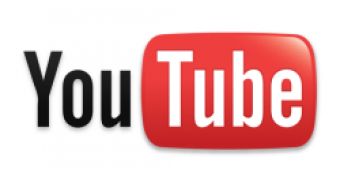Google's acquisition of YouTube is one of the company's best-known transactions and the most controversial. The deal made waves at the moment for the price tag it carried, which many believed to be significantly over-inflated, and later on for all of the copyright infringement troubles it carried. To this day, three years on, the site is yet to become profitable despite Google's best efforts feeding the naysayers. But now some interesting information has surfaced revealing that not only it knew that YouTube was overpriced but it gladly paid a – by its own estimates – $1 billion premium over the site's value at the time.
What's more, the revelation is coming from none other than Google's CEO Eric Schmidt who made the statement in court in the copyright lawsuit with Viacom which is currently undergoing, as Cnet found. While many questioned Google's judgment at the time, and some still do today, it looks like the company knew very well what it was doing and how much YouTube was really worth.
"This is a company with very little revenue," Schmidt told Viacom attorney Stuart Jay Baskin while on the stand. "[YouTube was] growing quickly with user adoption, growing much faster than Google Video, which was the product that Google had. And they had indicated to us that they would be sold, and we believed that there would be a competing offer – because of who Google was – paying much more than they were worth...We ultimately concluded that $1.65 billion included a premium for moving quickly and making sure that we could participate in the user success in YouTube."
Google's motivation for buying the video site at such a premium was to ensure that someone else didn't get it. But has it paid off in the long run? Well, it depends on how you look at it. From a pure numbers point of view the deal was a pretty poor one. YouTube's revenue has seen some solid growth but the site isn't profitable and may not be for a while, though if the current trend keeps up it should be in the green sometime next year. But for three years now Google has poured several billion dollars into the site and, while it can afford it, it's no small sum even for the search giant.
But, as countless analysts have pointed out, YouTube is far more valuable to Google than just as a revenue generator. On the whole, the vast majority of Google's ventures and products don't make any money or not enough to be sustainable on their own but the company needs them to feed its advertising business which still accounts for the vast majority of the company's revenue. With 100 million unique visitors in the US alone, YouTube is by far the largest online video site and Google actually benefits greatly from this as it can use the massive traffic the site generates as leverage to negotiate peering deals with the major bandwidth providers.
But in the end, the entire point may become moot as the site ramps up its advertising and partnership programs and eventually reaches profitability, something Google is more confident than ever will happen at some point in the not so distant future though the company has been reluctant to give an actual time frame.

 14 DAY TRIAL //
14 DAY TRIAL //